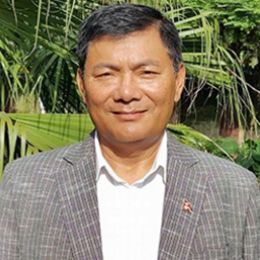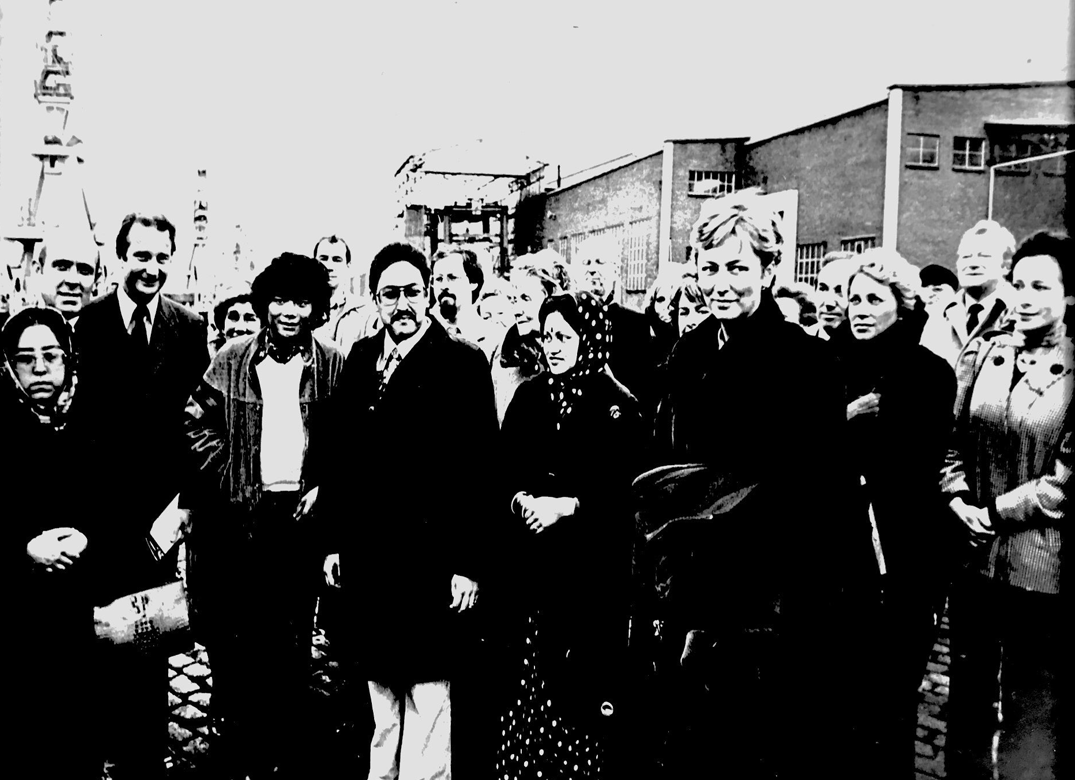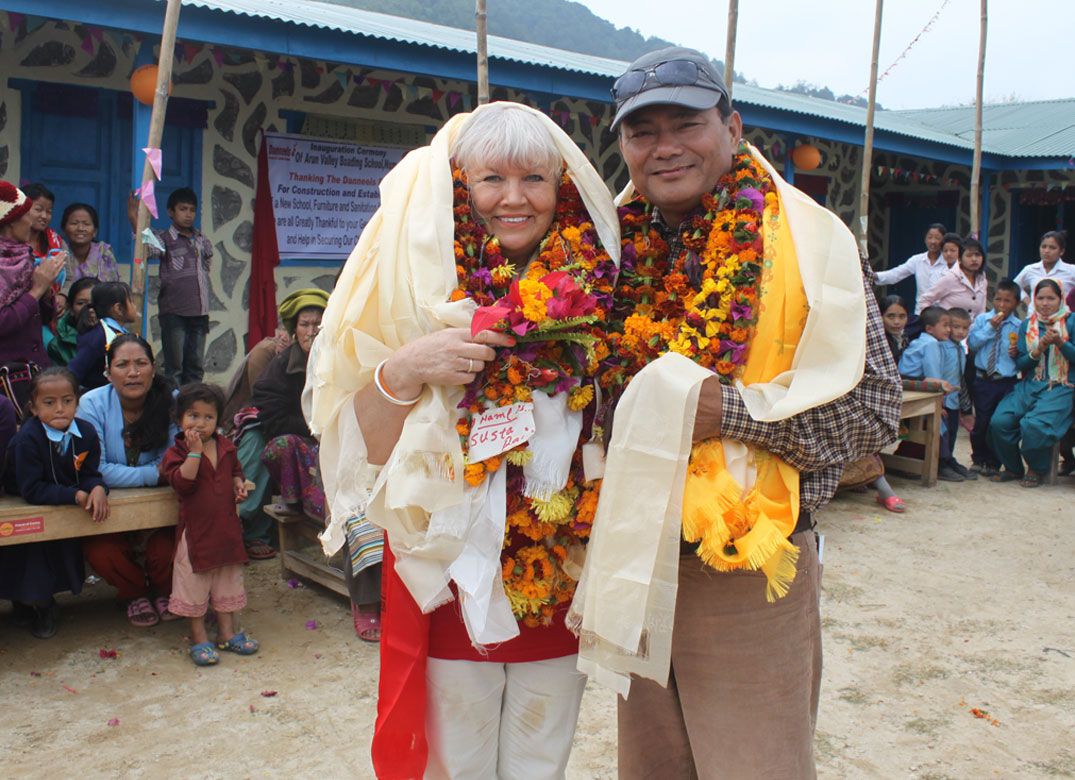
History
Mr. Pasang Sherpa
Mr. Pasang Sherpa is an inspirational leader, who believes in the power of education. He is a man with humble beginnings, who grew up in a village of 20- 30 households in Makalu, Sankhuwasabha. As he reminisces his school days, his eyes twinkle fondly remembering a time when he was a young boy, hungry for knowledge.
He shares, it was a different era when he had to walk 6-7 days from his village to reach the nearest government school. His grandparents had never seen a school and he was the first generation to have the opportunity to learn.
He remembers, “We were lucky enough to hire a private teacher who had passed 8 th grade, to teach a small group of friends. We made a small shed to study with a group of friends, and there started my literary journey, sitting in rocks to study ka, kha ga, gha (the alphabets). Over time we finally made a small school structure to study, and the Government of Nepal through the Village Panchayat gave us one teacher. This was a big win for us.”

Mr. Pasang had the opportunity to go to Belgium and learn carpentry and other technical skills, but unlike many of his time who would have preferred to live on in Belgium and establish his life there, he came back to Nepal. As he started doing social work, he was particularly motivated to bring quality education back to his district of Sankhuwasabha and his village.
Mr. Sherpa went to Belgium to study. It was while he was here that one day, he had the opportunity to meet HRH former King Birendra, and Queen Aishwarya, as the only Nepali in Belgium at the time.
“I grew up in a time where the barter system still existed- to study beyond Grade 4, I had to walk 4-5 days and needed shelter while studying. Hence, my education stopped at a young age, but I don’t want history to repeat and exclude my amazing community of the possibilities of growth and learning.”

“Because I did not get access to quality education, my main motivation of establishing Cunina Nepal was to ensure acess to quality to education for upcoming generations who live in remote and mountainous areas.”